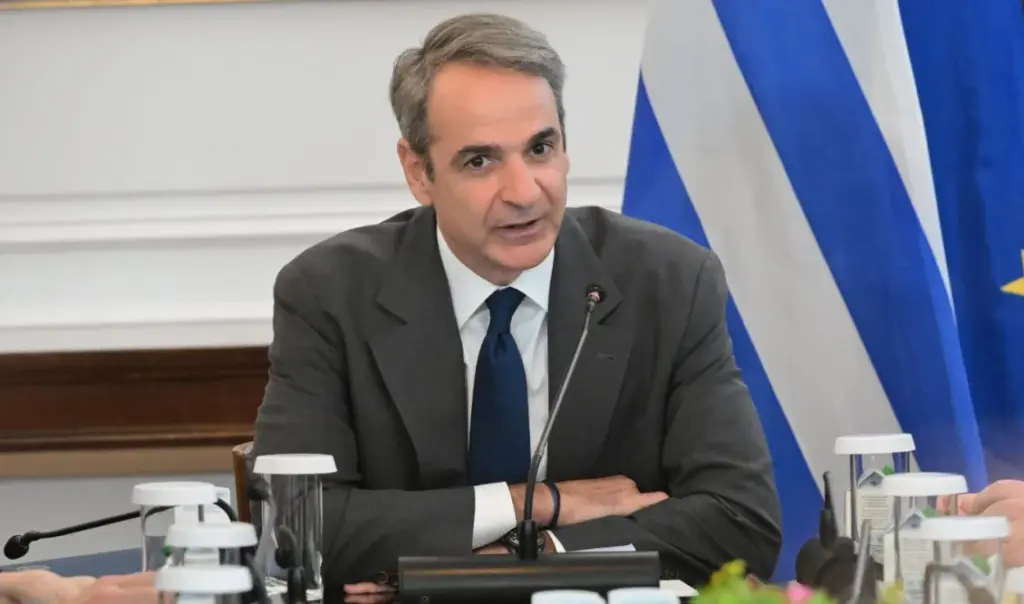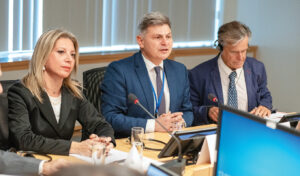The Greek government approaches the pan-European dialogue and tough negotiations that have now officially begun for the distribution of EU resources for the 2028-2034 period with concrete positions and demands, following the Commission’s presentation of the new Multiannual Financial Framework for this period, with a budget of two trillion euros. The government will claim funding with adequate resources for key developmental and social sectors, and critical public goods with multiplier benefits, such as defense reinforcement and energy interconnections. At the same time, it promotes for the first time a common action plan at national, regional and local level, through the National Strategy for Regional and Local Development, so that funding instruments can be utilized to address regional inequalities and local problems.
Greece’s goal: higher resources in EU Cohesion Policy and Common Agricultural Policy
Regarding Cohesion Policy and the Common Agricultural Policy, the permanent position of the New Democracy government is that they remain top priorities for Greece and expects higher resources and bolder steps to be presented during negotiations in the coming months. Disagreements regarding the orientation of the new EU budget and the distancing from regions and farmers were also expressed in a letter sent two weeks ago to the European Commission President by 14 countries, including Greece, Italy and Spain, expressing objections about the concentration of management and distribution of European funds. European Commission President Ursula von der Leyen stated that the new European budget “responds to today’s needs and tomorrow’s challenges,” however, significant disagreements from several governments are already being noted.
“We consider the strengthening of programs for issues of Greek interest, such as migration, defense, climate crisis as well as the fact that the budget of the Greek Commissioner’s portfolio has been significantly expanded, as transport networks and connectivity are sectors of particular importance for our country, as a positive development,” government spokesman Pavlos Marinakis emphasized yesterday. “We have two years of negotiations ahead of us, until the final picture of the fiscal framework for 2028-2034. But most importantly, politically: we have proven as a government and personally the Prime Minister, that in these negotiations our country, with us at the ‘helm’, emerges victorious,” Mr. Marinakis stressed.
“You come at a very interesting moment, one day after the initial announcements of the European Commission for the next European budget, the next Multiannual Financial Framework. And without going into many details, I want to point out that we are very satisfied with the fact that particular importance seems to be attributed to pan-European interconnections, electrical networks,” Mr. Mitsotakis said yesterday, addressing European Commissioner for Energy and Housing Dan Jørgensen at the Maximos Mansion. “This is an issue I have highlighted many times, among others in a letter I sent at the beginning of the year to the President of the European Commission,” the Prime Minister added.
The Greek government is prepared for a battle of endurance
In Athens, the Greek government is prepared for a battle of endurance, which could last until 2027 and could even reach the summer of that year, when our country will assume the six-month presidency of the European Union. Days ago, Deputy Prime Minister Kostis Hatzidakis appointed former minister and decades-long Commission official Kostis Mousouroulis as advisor, with responsibility for coordinating the negotiation for the EU’s multiannual financial framework. However, preparation at the Maximos Mansion has been underway for quite some time. Kyriakos Mitsotakis has been discussing this issue in recent months in private meetings with Mrs. von der Leyen, as well as with his European counterparts, such as recently with Sweden’s Prime Minister Ulf Kristersson in Stockholm.
“Greece approaches the upcoming negotiations with a constructive spirit, seeking a balanced outcome that reflects both our common goals and our national priorities,” Minister of National Economy and Finance Kyriakos Pierrakakis characteristically emphasized.




